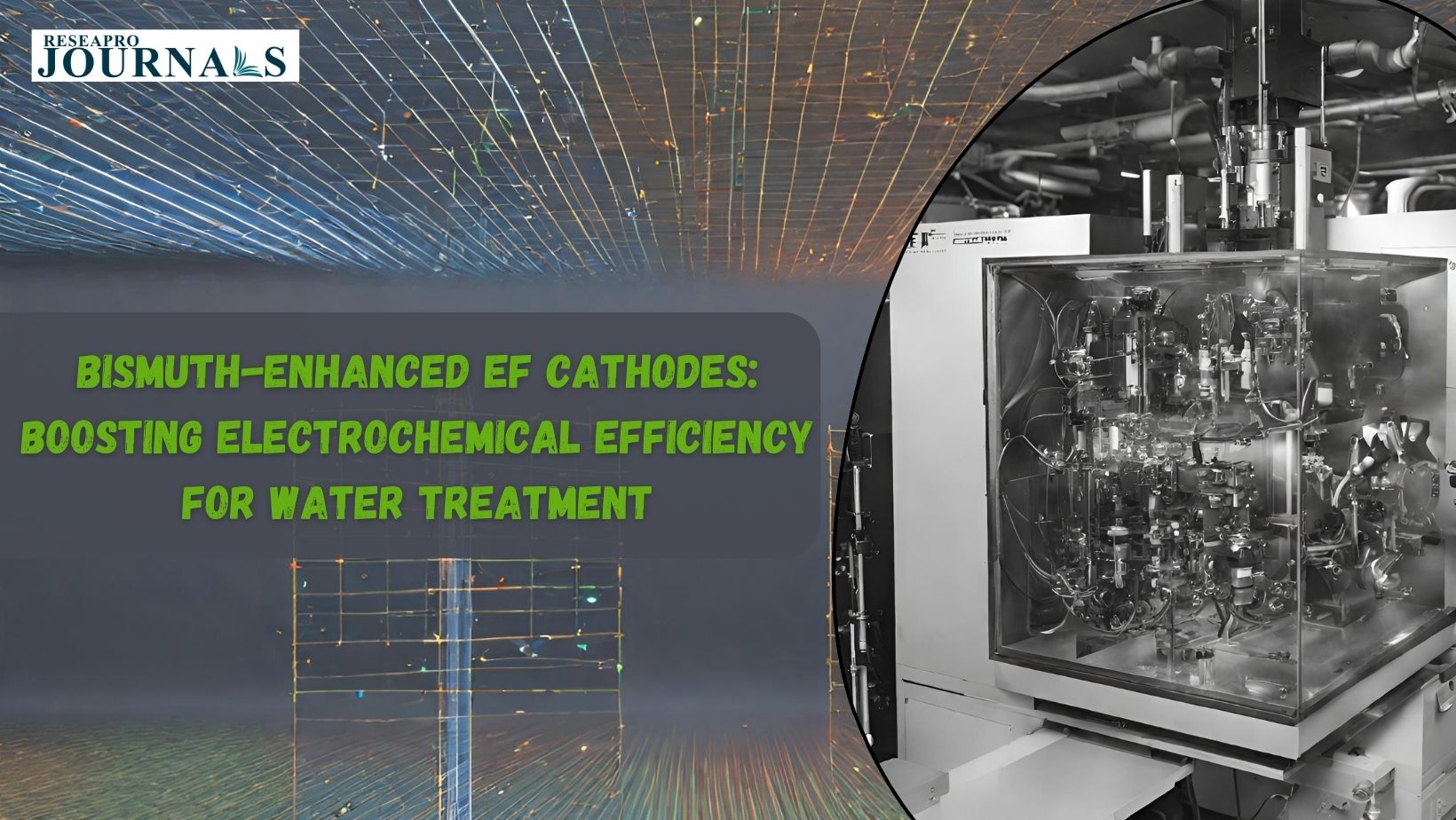The paper investigates the use of bismuth (Bi) composited with carbon nanotube-coated titanium (Bi/MWCNT/Ti) cathodes in an electro-Fenton (EF) system. The authors coated a titanium substrate with multi-walled carbon nanotubes (MWCNT/Ti) and then electrodeposited bismuth onto the MWCNT-coated Ti surface. The effects of different electrodeposition times on the surface morphology and electrochemical characteristics of the Bi/MWCNT/Ti cathodes were studied. The results showed that electrodeposition for 5 minutes at -0.85 V vs. Ag/AgCl resulted in a uniform distribution of dense bismuth across the cathode surface, providing better hydrophilicity and promoting higher electron transfer rates. When used as an EF cathode, the Bi/MWCNT/Ti cathode achieved a rhodamine B degradation rate of 80.8% after 30 minutes, which was significantly higher than the unmodified Ti cathode. The use of bismuth in EF cathodes improves the efficiency of the EF process. The composite technique used in this study allows for the preparation of cathodes with excellent hydrophilicity and catalytic performance. The metallic bismuth effectively improves the kinetic rate for the titanium cathode in the EF system. The technique of low-temperature and controllable composite electrode preparation has the potential for application in advanced oxidation processes.




